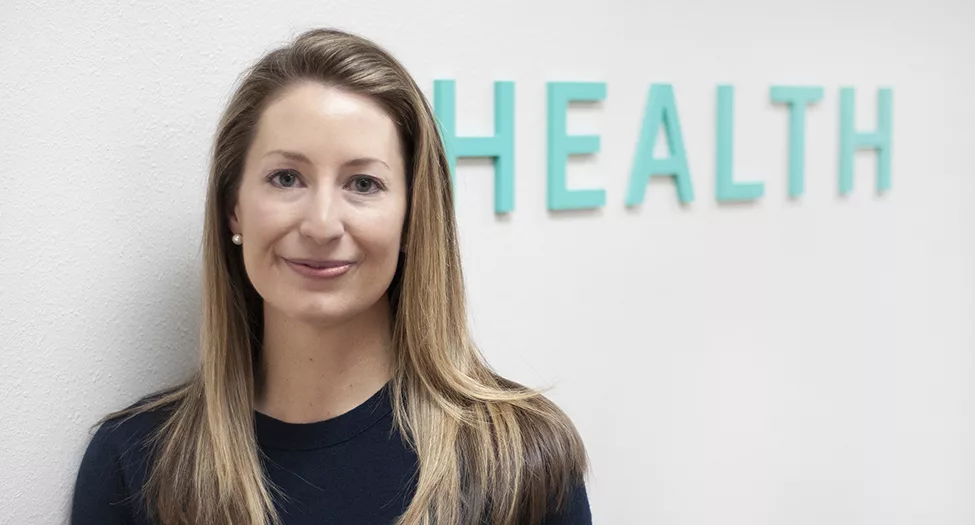
Home » Richland doctor offers membership health care
Richland doctor offers membership health care

June 13, 2019
Tri-City native offers nontraditional setting for personalized care
A new membership-based health care clinic is available in Richland, the brainchild of a board-certified internist who wanted to offer more patient-focused care.
Dr. Jessica Schneider, a Hanford High School graduate, decided to jump off the “hamster wheel” she said was inherent in traditional medical practices to open Empowered Health.
She said she found herself facing two dilemmas: “One, just getting very burned out, with shorter and shorter appointment times being mandated from the top down, and feeling like the only time I had was to throw medication at patients. I became more and more frustrated, feeling like I had these other solutions. I had this huge toolbox to offer, and yet I had this very focused outcome. Most people are conditioned to medication, so that’s what it landed on most of the time.”
Out of medical school for about a decade, Schneider said she first began experiencing burnout within two years of leaving residency.
“I hit the crux of that about four years into practice. And unfortunately, all of my colleagues are in the same spot,” she said.
Feeling like she might be pressed to leave medicine altogether due to disillusionment, the Tri-City native began investigating other options.
“I found this blend of concierge and direct primary care membership,” Schneider said. “The idea is that you can step outside of the insurance model and hit on a lot of the pinpoints we have within the larger system right now, which is time, trust and transparency.”
She opened Empowered Health in the Richland Parkway this spring in a corner building on Knight Street, in the office space formerly occupied by Gravis Law before it moved one suite north.
Schneider said her clinic benefits patients by working outside the typical “insurance model” that she described as rushing patients in and out in a limited time, allowing symptoms to be treated in a reactive fashion only.
Instead, new patients at Empowered Health spend 90 minutes with the doctor, and this includes time mostly spent in her office, not an exam room.
Schneider said most primary care doctors carry a patient load of up to 3,000, and with the prototype she’s following, she expects to max out at 600 patients.
“It allows a lot more time and attention from the doctor. And for the doctor, it allows you to have a newfound caring and empathy for your patients because you can know them more and know what else is going on in their life,” Schneider said. “It restores that original relationship of what we think about medicine, where 100 to 200 years ago, you knew your doctor and the doctor knew the family and there was a lot more going on than the quick in and out.”
Schneider believes lifestyle is often the root cause of chronic illness.
“We’ve had so many advancements in medicine with life-sustaining treatments and these brilliant, designer medications, but we’ve also gotten sicker as a population and a lot of it has to do with lifestyle. We’re spending all this time and we’re seeing people get worse because we can’t address the underlying issues, and your doctor doesn’t have time to talk about it,” she said.
Schneider completed a fellowship in integrative and functional medicine, which encourages a proactive approach to treatment.
“Instead of waiting for chronic illness to happen, we’re working with you, listening to your lifestyle, looking at advanced biomarkers to actually show you years before something might develop that you’re actually on the road to that,” Schneider said. “For example, we look at markers of insulin resistance that aren’t routinely tested — fasting insulin is an example. If that’s elevated, your risk of diabetes within five years is significantly higher, but we (doctors) are often not checking that.”
She sees her clinic as a practice for the future, which could keep more physicians in the field.
“In this community, every time we turn around, there’s another doctor leaving practice. With this model, that’s not going to happen,” Schneider said. “From a fulfillment of a love and a calling as a career, this is much more satisfying for a physician. Now I see myself being able to practice for 20, 30, 40 years rather than counting the days until retirement, or burning out much quicker than that.”
Empowered Health does not accept insurance and instead runs on a membership system.
Prices start at $155 a month for those older than 18, which covers appointments, phone calls or online communication with the doctor.
If any bloodwork, imaging, medication or screening tests are needed, these can be submitted for insurance coverage, but Schneider’s team also can create a “superbill” for insurance companies that could be incorporated into a deductible.
Since Empowered Health will cost nearly $2,000 annually on top of insurance coverage, Schneider said those who join are more likely to be personally invested in maintaining their optimal health.
“Any time we put money into something, we also put our energy into it. So if we’re going to put our money into it, we’re more likely to actually invest in the changes and be proactive,” Schneider said.
As an internist, Schneider can handle a range of medical issues, but may refer out patients if needed. She intends patients to avoid “99 percent” of issues typically treated by urgent care visits since use of a patient portal allows access with the doctor within 24 hours, including weekends and holidays.
Patients are a good fit for Empowered Health if they want to prevent chronic disease, decrease medication burden, learn more about their own medical conditions and want to feel better next year, Schneider said.
» Empowered Health: 503 Knight St., Suite B, Richland; 509-392-7047; empoweredhealthinstitute.com; Facebook; Instagram
Business Profiles Local News
KEYWORDS june 2019





